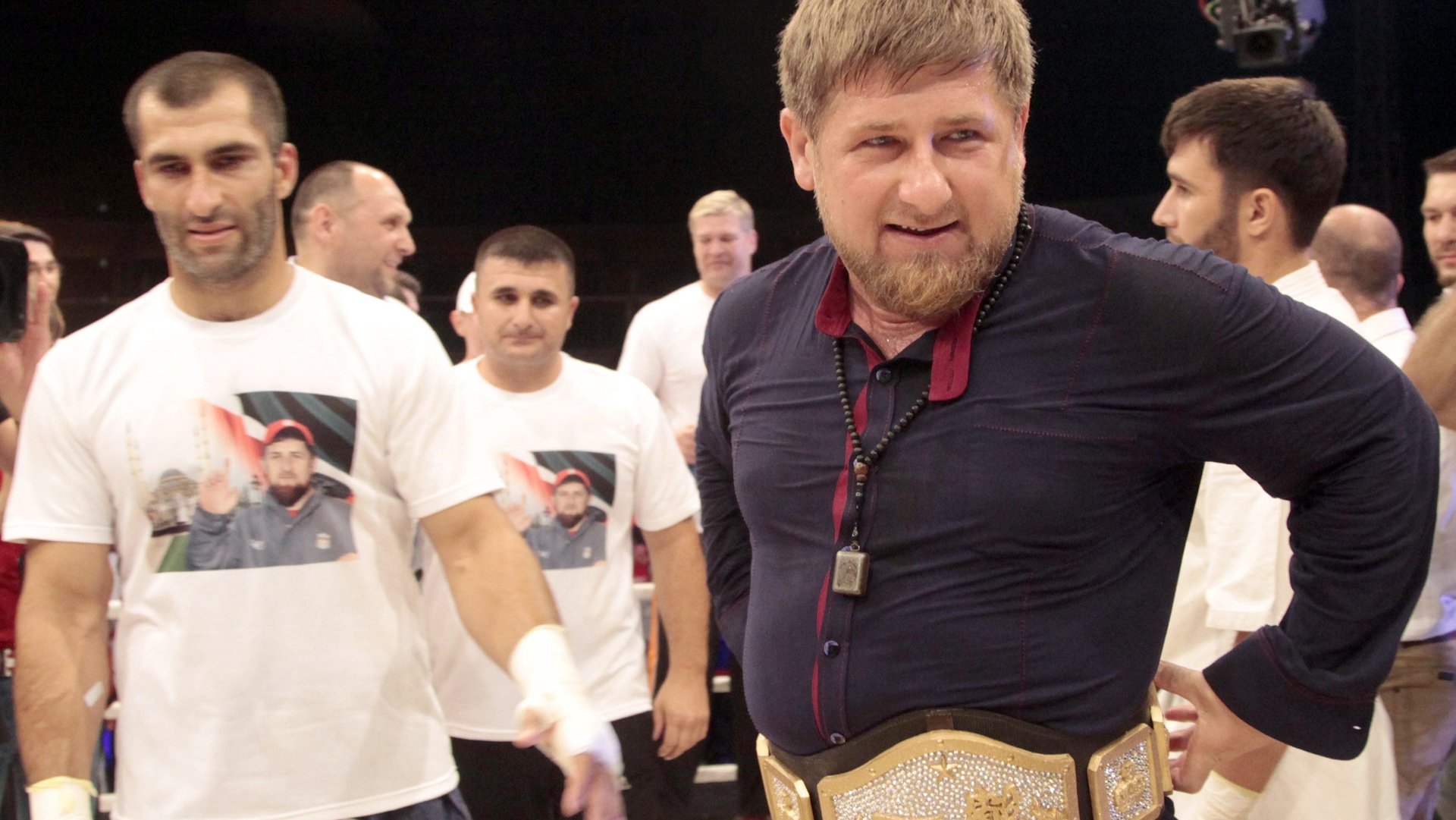Facebook won’t say why it’s selectively adhering to US sanctions
When the US banned Ramzan Kadyrov, the Instagram-loving Chechen strongman, from entering the country under a sanctions law in December 2017, Facebook also blocked him from its platforms. The company said it did so to comply “legal obligations” imposed by the US government. But Facebook has not booted other people who were put on sanctions lists by the US under various laws, including at least one person, Israeli businessman Dan Gertler, sanctioned under a version of the same law as Kadyrov, also in late December.


When the US banned Ramzan Kadyrov, the Instagram-loving Chechen strongman, from entering the country under a sanctions law in December 2017, Facebook also blocked him from its platforms. The company said it did so to comply “legal obligations” imposed by the US government. But Facebook has not booted other people who were put on sanctions lists by the US under various laws, including at least one person, Israeli businessman Dan Gertler, sanctioned under a version of the same law as Kadyrov, also in late December.
A Facebook spokesperson said the discrepancy occurred because, “we operate under the constraints of US laws, which vary by circumstance.” The company wouldn’t explain further.
Philip Urofsky, a partner at New York law firm Shearman and Sterling and an expert on international sanctions, said Facebook could fall under the definition of a “service,” which US companies are banned from providing to sanctioned individuals. The laws under which individuals are sanctioned vary, but the provision barring providing services is included in many of them.
Both the Magnitsky Act, which targets people involved in corruption and human rights abuses (in Russia, and around the world through its global version), and executive orders issued in 2014 by Barack Obama, which penalize Russians involved in the country’s intervention in Ukraine, contain the services ban provision. Both laws freeze US assets of the sanctioned individuals and ban them from entering the US. Obama-era sanctions also apply to certain Venezuelan officials, mainly for acts undermining the country’s democracy.
But why block from Facebook some individuals and not others?
Kadyrov was sanctioned for his involvement in extrajudicial killings and torture, according to the US Treasury, under the Magnitsky Act. A colorful presence on social media, Kadyrov had more than 3 million followers on Facebook’s Instagram and more than 750,000 on Facebook itself.
Here are examples of individuals sanctioned by the US, whose accounts are still active on Facebook:
- Dan Gertler, an Israeli billionaire whom the Treasury says made a fortune off corrupt deals in the Congo. He was sanctioned, like Kadyrov, under the Magnitsky Act (its global version).
- Dmitry Rogozin, the current Russian deputy prime minister, who has over 80,000 Facebook followers. Rogozin is penalized under the Ukraine sanctions.
- Aleksandr Dugin, the influential and notorious political scientist and Vladimir Putin’s favorite philosopher. He has more than 30,000 followers. Dugan is penalized under the Ukraine sanctions.
- Yelena Mizulina, a Russian member of parliament (MP) who in 2013 spearheaded the country’s anti-gay laws and, last year, the decriminalization of domestic violence. Mizulina is penalized under the Ukraine sanctions.
- Sergey Zhelezhnyak, a Russian MP known for his fear-mongering rhetoric before the Russian invasion of Crimea in 2014. Zhelezhnyak is penalized under the Ukraine sanctions.
- Nicolas Maduro, the current Venezuelan president, whose Facebook page has 444,000 followers. He was sanctioned by the Trump administration under Obama’s executive order.
Some lawyers argue that sanctions are not meant to police content created by sanctioned individuals. “It’s not a law that appears to be written or designed to deal with the special situations where it’s lawful or appropriate to repress speech,” Jennifer Stisa Granick, an American Civil Liberties Union attorney, told The New York Times.
Urofsky said that if Facebook is, as it maintains, a communications platform and not a media company, it should adhere to the ban on providing services. “If they don’t see themselves as a media company, then it’s hard to see how they wouldn’t be bound by this law,” he said. Journalists would not be banned from interviewing Kadyrov, Urofsky said, but a private company that gives Kadyrov an open forum to talk might be banned from allowing him to use that service.
Facebook told Quartz it will “continue to work with appropriate government authorities to ensure we meet our legal obligations and to explore options for complying with the law in a way that maximizes free expression on our platform and keeps people safe.” It did not answer questions about how it would verify whether it was taking down the right accounts, and not people with the same name or fake accounts. The US Treasury Department did not respond to a request for comment about Facebook’s legal obligations.
Correction: This story initially referred to Philip Urofsky as Paul. We apologize for the error.